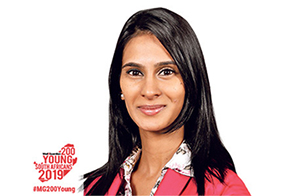
Towards the leading College of Law and Justice in Africa

Eveshnie Reddy, Lecturer in the College of Law
Nominated by Mail & Guardian as one of the top 200 young South Africans, Unisa’s Eveshnie Reddy is humbled to be recognised in the Justice and Law category. The announcement of her award was made in June 2019. Despite being a lecturer at the School of Criminal Justice in the Department of Criminology and Security Science, the 33-year-old is also a PhD candidate at the University of the Western Cape (UWC).
The Mail & Guardian annually profiles thought-provoking young people under the age of 35 to showcase the talent that shapes the country’s future. The adjudicators of the 14th Mail & Guardian Young South Africans Award saw trailblazing Reddy as an activist pushing for change in education.
The news team interviewed Eveshnie Reddy to find out about her award.
According to the Mail & Guardian, winners were selected based on the unique contributions they make in South Africa and in their respective fields.
This opportunity might open doors for collaboration with external stakeholders where I will be able to contribute (incrementally) towards Unisa’s collective goal of diversity, inclusion and transformation.
My current research areas – cybercrime, the legal validity of internet surveillance technologies, the role of Artificial Intelligence (AI) in criminal justice processes and the regulation of cryptocurrencies – are all interdisciplinary in nature and require me to delve into computer science, economics, law and criminology. I am currently collaborating with Prof Keshnee Padayachee from the College of Graduate Studies, School of Transdisciplinary Research Institutes (STRI), Science and Technology Education (ISTE) on a research project entitled "The legal validity of internet surveillance technologies to monitor and detect insider threats". I am therefore excited at the opportunity for possible collaboration with academics from these disciplines and from the College of Law.
I see this honour as a call to become more actively involved in not only criminal justice initiatives, but also initiatives that motivate and assist the youth of South Africa to activate and hone their own skills – whatever those skills might be. Each person has a unique skill and thus has the potential to make a tangible difference in society.
* By Lesego Ravhudzulo, Journalist, Department of Institutional Advancement
Publish date: 2019-12-03 00:00:00.0